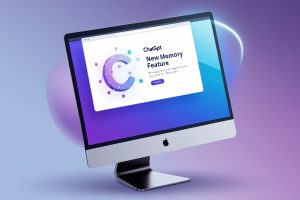
In a historic breakthrough for the intersection of law and artificial intelligence, Court Easy AI has become the first AI system to successfully pass the All India Bar Examination (AIBE), not only clearing the test but doing so with full legal reasoning capabilities that match and in some cases surpass those of human candidates.
The All India Bar Examination, administered by the Bar Council of India, is a mandatory certification for law graduates seeking to practice law in Indian courts. The exam is known for its complexity, requiring nuanced understanding of constitutional law, criminal law, civil procedure, ethics, and current legal developments. Until now, no AI system has ever officially attempted or passed the test in its entirety.
A New Era in Legal Technology
Developed by LexMachina Labs, Court Easy AI was trained on a corpus of over 1.5 million Indian legal documents, including Supreme Court judgments, High Court rulings, statutory texts, and bar exam questions from the last 20 years. However, what truly sets Court Easy AI apart is its explainable reasoning engine, a neural-symbolic hybrid that mimics the step-by-step legal logic used by practicing attorneys.
Unlike standard large language models that provide answers based on pattern recognition and probabilities, Court Easy AI offers structured legal opinions that include citations, legal doctrines, and a clear justification for every conclusion it draws.
Dr. Meera Nanda, Chief Scientist at LexMachina Labs, emphasized:
“We didn’t just want an AI that could guess the right answers. We built Court Easy to think like a lawyer — to argue, to reason, and to explain. Passing the AIBE proves that AI can now meet the rigor of professional legal standards in India.”
What It Means for the Legal Profession
The AI scored above the national average, outperforming over 80% of human test-takers in both objective and case-based sections of the exam. Legal educators and professionals are calling it a watershed moment for India’s justice system.
“AI has assisted in legal research and document automation before, but this is the first time we’re looking at a system that could be used for substantive legal reasoning,” said Justice (Retd.) Prakash Sinha. “It raises exciting — and also challenging — questions about the role of AI in legal interpretation and advocacy.”
Ethical and Regulatory Implications
While Court Easy AI is not legally allowed to practice law, its performance is likely to ignite debates around the ethics of AI in law, especially in a country where access to affordable legal aid remains a pressing issue.
The Bar Council of India issued a statement acknowledging the result, stating,
“While no non-human entity may seek enrolment as an advocate, we recognize the growing role of AI in augmenting legal services and are open to discussions on its responsible use.”
What’s Next?
LexMachina Labs has announced plans to roll out Court Easy AI Pro later this year — a subscription-based platform aimed at law firms, legal clinics, and public defenders, with features such as AI-assisted brief writing, case forecasting, and judgment summarization in regional languages.
As India’s legal system grapples with a backlog of over 50 million cases, tools like Court Easy could dramatically improve legal accessibility, reduce research time, and enhance the quality of representation for underprivileged litigants.
For now, Court Easy AI’s achievement is a signal of a future where human lawyers may find not just assistants, but true cognitive collaborators — machines that understand, reason, and uphold the law.

I am a person who is positive about every aspect of life.I have always been an achiever be it academics or professional life. I believe in success through hard work & dedication.
Technology Blogger at TechnoSecrets.com






